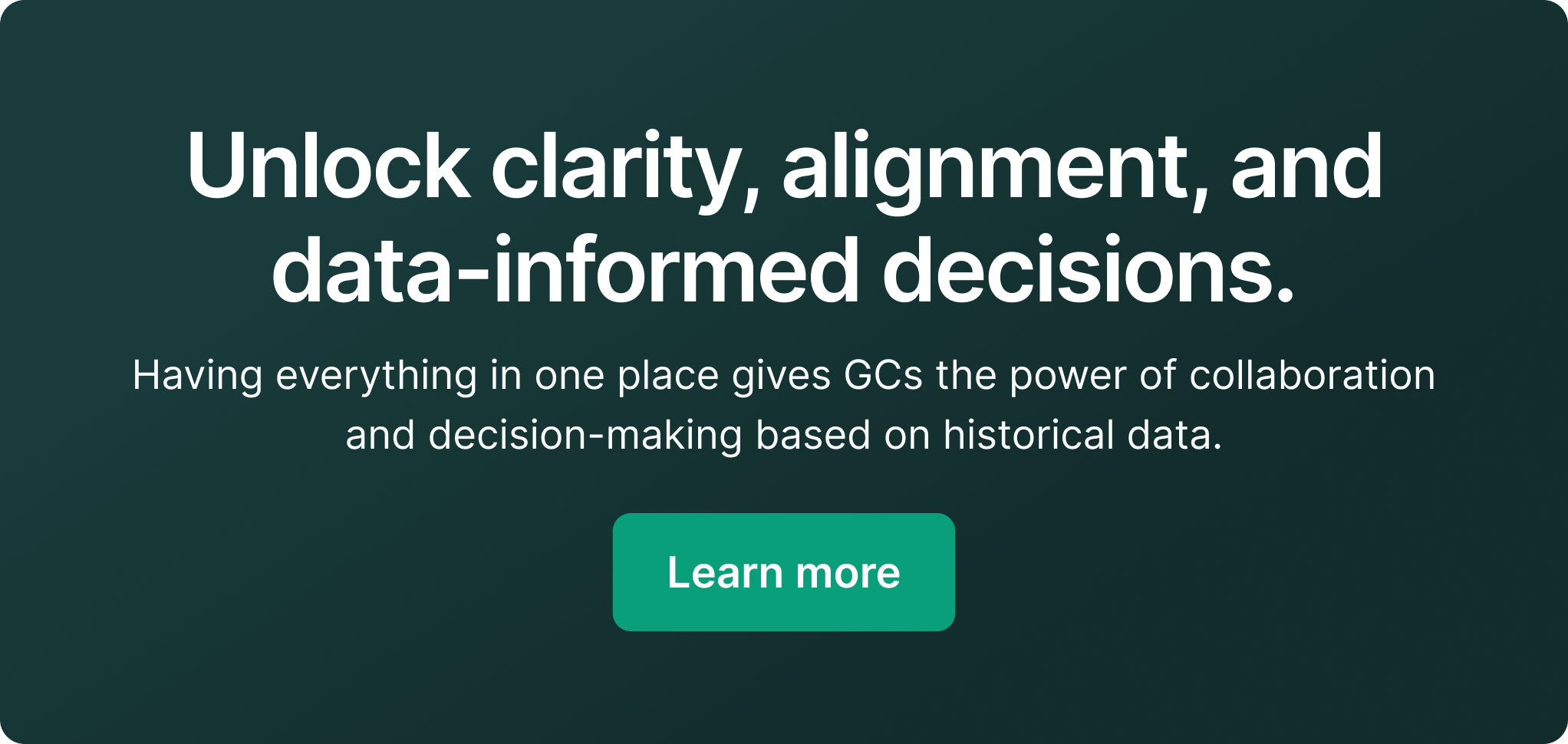The Pros and Cons of ChatGPT in Construction
OpenAI's new tool is on the tip of everyone's tongues, but does it translate to construction?

Michael Sullivan
Senior Growth Marketer

My first encounter with artificial intelligence was with the chatbot SmarterChild on AOL Instant Messenger (AIM). I’ll let the overwhelming sense of nostalgia washing over you right now dissipate before we move on.
Okay, it’s been about ten minutes. Thought I lost you there. Let’s continue.
As I recall, SmarterChild would spit out answers to basic questions and communicate as best as it could, usually comically so. It was basically a much dumber Siri. Insulting it or giving it something too hard would usually provoke an agitation akin to a cat’s response to being spray-bottled. “Child” was definitely an apt noun choice for it, having roughly the IQ of a 7-year-old with the vocabulary of a college student. However, it still seemed more futuristic than primitive at the time. The first step towards the robots-taking-over foretold in The Matrix felt present. It was fun and, I’ll speak for myself, scary in a way. Retrospection is everything, isn’t it?
With AI tools like ChatGPT and DALL·E 2 taking the world by storm in 2022, The Matrix feels much more in range than it did during the innocent days of SmarterChild. Tech experts speak in “it’s just a matter of time…” inflections, anxious LinkedIn posts posit the AI-outsourcing of entire occupations, and what was the real story behind Google firing someone on their AI Ethics team? OpenAI as of this writing seeks a $29 billion valuation. For context, that’s 3x Spotify, a tool every single person I know happily pays $10 a month for.
In reality, The Matrix is a bit closer than it was 20 years ago, but not as close as you’d think reading doomsday content meant to provoke clicks and impressions. As it stands, public access AI tools like OpenAI’s ChatGPT are truly useful and can absolutely make our lives easier.
So how does ChatGPT affect construction in 2023? Is ChatGPT worth implementing in your daily routine if you work at a general contractor?
Let’s get into some pros and cons of the tool.
The Pros of ChatGPT in construction
1. ChatGPT is a great unpaid intern at any construction company
One company, Net Friends, published some use cases with ChatGPT and found it was especially useful in writing job descriptions, giving risk guidance, aiding in marketing communication, and providing business guidance. All of these things are beneficial at a general contractor.
Do you need to write an email to one of your project managers but this is the 3rd time you’re asking them for something, you don’t want to come off as too needy or harsh, and you also have 3 minutes to write this before an all-hands meeting? Let ChatGPT quickly take the first crack at the email with these specific notes in your prompt. It’s much easier to copyedit than copy-write, after all, especially in a pinch.
2. ChatGPT is a great communications spot check.
Grammarly should be gulping and pulling on their collar with their finger right now because not only is ChatGPT better suited to understand human language and grammar, it can point out if you have glaring logic errors in your writing or suggest if you’re missing an important point—all for free.
Throw a draft of your email to the team in ChatGPT to see if it’s clean, makes sense, and is achieving the goal you want with the clearest diction. This is perfect for those whose managerial skills and construction know-how exceed their knack for English/language arts. The same goes for correspondences with clients and prospects. Extra eyes are extra eyes, even if they’re robot eyes.
3. ChatGPT can replace Google for simple queries.
Have you ever Googled something and the top results (and even the next few pages) didn’t have quite what you were looking for? Similarly, have you ever Googled something and the answer was stifled by advertisements or companies looking to convince you to buy something?
In some ways, ChatGPT far surpasses Google when it’s easier to read something that directly and concisely answers your question without the fluff or sales pitch. Sometimes Google doesn’t know what you mean simply because the question is niche enough that no one else has asked it (or no one else has written an answer to it because it’s not profitable for them to).
4. ChatGPT can be free construction education.
I asked ChatGPT the ways in which AI are currently being used in construction and it instantly told me about predictive modeling, quality control, safety, asset management, and design with short blurbs for each. I could easily pick one of those and ask ChatGPT to elaborate on it.
If you need to refresher or even a crash course you never got, pick any topic in construction and fall down a rabbit hole of education.
5. ChatGPT helps you problem solve.
ChatGPT is useful here as long as the problems that need help solving are generalities. By “generalities,” I mean it doesn’t require a real-time context. You want to ask a question or series of questions where the answers are as relevant now as they would be in 2021 or 1987. Think of ChatGPT as another head you can put together with yours (one that’s really good at math).
Here’s a sample scenario for if you were planning to build a hospital. Let’s say you’re at a GC and you’ve been tasked with identifying the most suitable location, taking into consideration things like population center proximities, transportation access, and availability of building resources.
You could plug the data you have into ChatGPT to help research past project information that aligns with yours while analyzing your data and comparing. You could present ChatGPT with the criteria you find necessary in building the hospital and it could help give a clearer understanding of which option is best in a clear, easy-to-understand format that Google couldn’t possibly provide.
Additionally, you could use ChatGPT to help you research and compare the costs and benefits of different locations and to consider potential risks and challenges that could spring up doing construction. All in all, ChatGPT can GCs make more informed decisions and potentially catch lapses of human error.
The Cons of ChatGPT in construction
1. The current iteration of ChatGPT is in beta and its answers are capable of error.
How could such a valuable all-knowing AI be so… free? The easy answer is that it’s not all-knowing, in fact it’s nowhere close. OpenAI’s popular chatbot is currently in beta, meaning the company is still learning about the way we interact with a primitive model that will be much more optimized over the coming months and years.
For summarizing ideas or expounding upon certain general topics, ChatGPT excels. But depending on its limited historical cache and the potential shortcomings in relation to the way it was trained to understand prompts vs. the way you worded your prompt, ChatGPT could give you an answer that is completely incorrect. OpenAI is still ironing out ChatGPT’s ability to admit its shortcoming in a prompt rather than try to attack it anyway and fail. For those of us who’ve played around with ChatGPT, we know about its stock apology for screwing up when you catch it seemingly in a lie.
2. ChatGPT’s history cache lags two years behind.
According to the AI itself, “As an artificial intelligence language model, I do not have access to real-time information and my knowledge is based on the data that was available to me at the time of my training. My knowledge cutoff is 2021, so I do not have information on events or developments that have occurred after that year.”
Yes, ChatGPT has no idea about the Will Smith slap or how the first season of House of the Dragon turned out. More importantly, two years of human insight is quite a bit to be behind on considering how fast we’re developing, how trends evolve, and how norms shift based on new research.
When it comes to timeliness, this is where the up-to-date and constantly expanding Google still dominates a static, language-based tool like ChatGPT. You wouldn’t be able to ask it about potential clients in your market, or predictions of input prices in the immediate future. Much of what we expect this year and next is best influenced by what happened last year, which ChatGPT is blind to.
In the end, ChatGPT is the next evolution of search engines combined with intuitive conversational language software. Luckily for us, artificial intelligence is still in its infancy stage simply because it still requires human collaboration to sift through, interpret, and evaluate the efficacy of its results. We are in a special era not unlike the thrilling first time you Googled something and thought “well, this changes everything.”
Like all powerful new tools, we should use it very carefully knowing that it’s still far from perfect… for now. At the very least, it’s an acceptable creative caddy.
“I’ve kept a ChatGPT dedicated window open and visible on my screen for much of the week this past week,” said John Snyder in his case study for Net Friends. “I’ve turned to it again and again, and found that it’s highly complementary to my work. I’ve felt more creative, engaged, and relaxed this work week with this tool by my side. And unlike Google searches, which point me towards more articles and videos that I can research and work to compile on my own, this tool presents refined and actionable results I can build on. The power of ChatGPT is that it gives me a starting point, a seed, a foundation to build on.”

